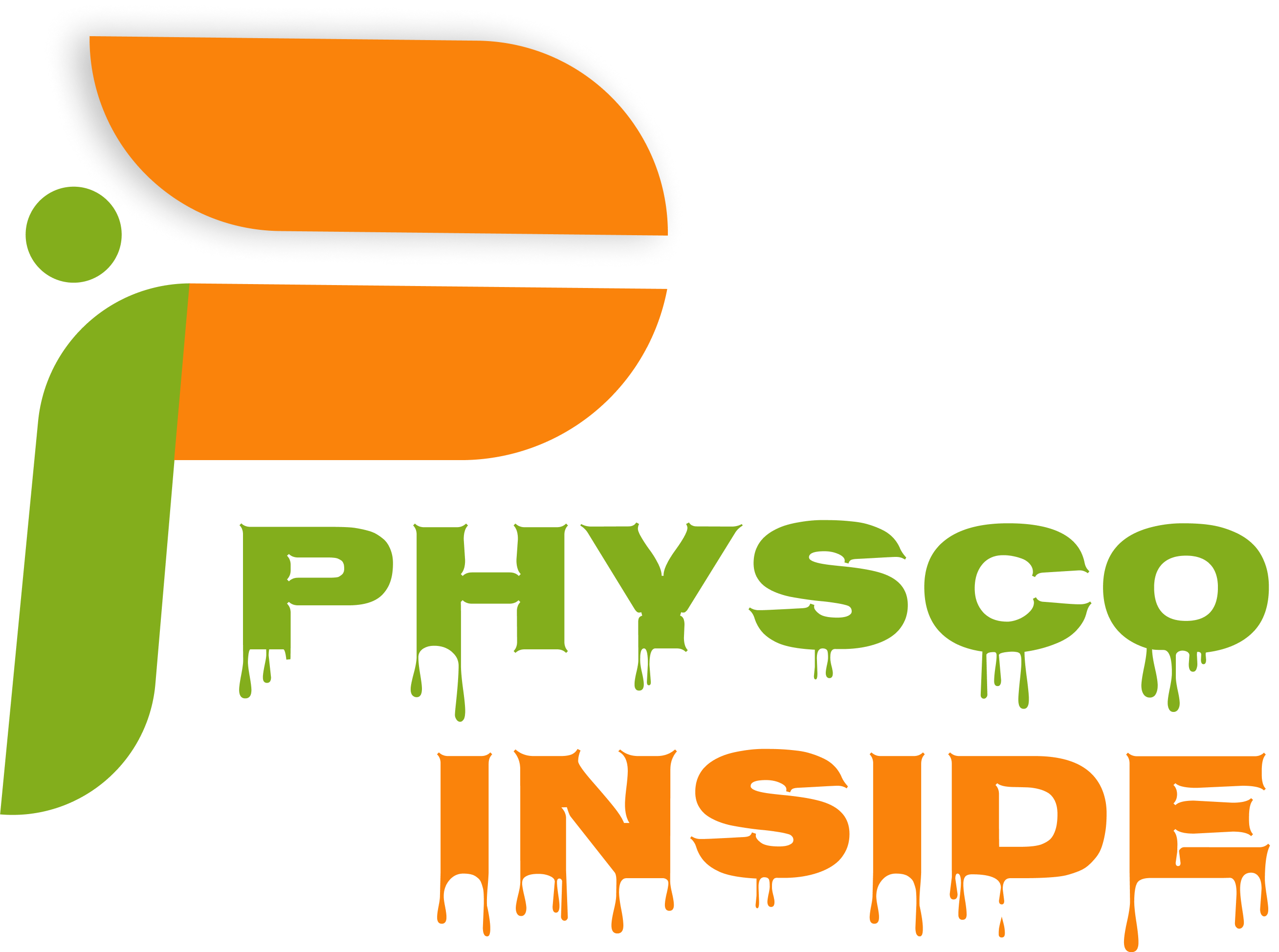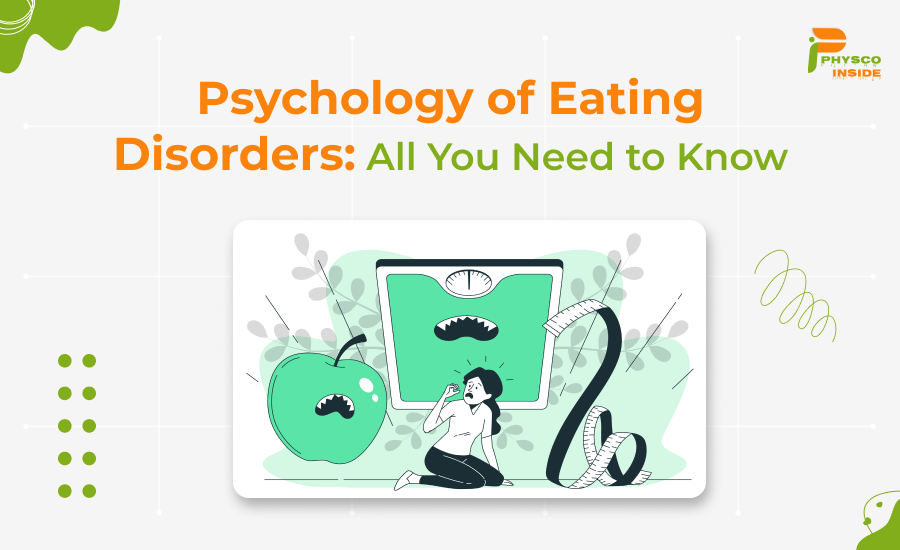(1) Introduction:
Understanding the Psychology of eating Disorders is Essential for useful Checkups and treatment. Psychological factors such as low Self-respect, and Uncontrollable, and personal Imbalance often Contribute to their development. Social and Cultural factors effects, such as the Societal level of beauty and media picture, further Compound these issues. Mental Theories, such as the Biopsychosocial model, provide an understanding of their complex nature. Effective Involvement, such as Cognitive-Behavioral Therapy, targets these mental factors to help recovery. Recognizing the mental Complexities of eating Disorders is vital for Clinicians and Researchers to develop an Open-minded procedure for Intervention and support. I am writing this article, and this article will give you proper knowledge in detail, its importance, factors, and treatment.
(2) Definition:
“Eating Disorders are complex mental health conditions Represented by Abnormal eating habits. Its great concern is about body weight or shape, and Deformed Perception of body image”. They include Anorexia nervosa, bulimia nervosa, binge eating Disorder, and others.
(3) Importance of Understanding the Psychology of Eating Disorders:
To know What is the Importance of Understanding the Psychology of Eating Disorders, Learn the following key points
(3.1) Wide Treatment Approach
Psychological understanding of eating Disorders to address issues such as Deformed body image, low Self-respect, and not Providing proper coping tools. By taking in the Psychological process alongside medical and Nutritional support, treatment results can be Improved, leading to more effective recovery.
(3.2) Personalized Intervention Strategies:
Understanding the unique Psychological profile of everyone enables Clinicians to modify treatment Processes to meet their specific needs. Psychological understanding Identifies factors that may lead to attacks, Allowing for careful treatment to prevent Outbreaks.
(3.3) Prevention Efforts:
Understanding Psychological risk factors enables early discovery and checks efforts among unsafe populations. Psychological knowledge informs the development of protection levels and promotes positive body image, Self-Respect, and healthy eating behaviors.

(4) What are the Disorders of the Psychology of Eating?
The Disorders related to the Psychology of eating are commonly known as “eating Disorders”. These Disorders affect our mental health, Abnormalities of eating behavior, Deformed body image Unhealthy relations with food and weight, etc.
(4.1) Anorexia Nervosa:
It is a serious eating Disorder in which people are extremely worried about being Overweight or becoming fat. This is represented by unusual control of food use. Serious feelings of fear toward putting on weight or becoming fat, and a damaged Self-perception. People with Anorexia might consider themselves to be Overweight notwithstanding being Underweight.
(4.2) Bulimia Nervosa:
It is also an eating Disorder in which people eat a lot of food in a short time. Includes boring events of enough followed by Compensating ways of Behaving like Self-encourage dry heaving, abuse of purgatives, fasting, or unnecessary activity. People with bulimia might keep a generally normal weight.
(4.3) Binge-eating Disorder (BED):
It is also an eating Disorder in which people regularly eat a lot of food in a short time. Set apart from events, during which people eat a lot of food in a brief period and feel a Deficiency of control feeding. BED can lead to being Overweight, mental & health problems, emotional distress, etc.
4.4) Avoidant/ Restrictive Food Intake Disorder (ARFID):
This eating Disorder is when people eat a certain food or enough food because of worries about how food tastes, smells, or feels. Includes limited food or cop-out of specific food sources because of material issues, like taste, surface, or anxiety about Unfriendly outcomes (e.g., airless). This problem can cause Nutritive lack and Disabled development in Youngsters.
(4.5) Other Specified Feeding or Eating Disorders (OSFED):
OSFED includes a scope of dietary issue side effects that don’t meet the full rules for Anorexia nervosa, bulimia nervosa, or binge. Models include Abnormal Anorexia nervosa (typical weight or above) and Cleansing issues (Cleansing without Overeating). It is still a serious problem that can affect our mental and physical health.
(5) What are the Psychological factors in Eating Disorders?
Here are some Psychological factors that are very important to understand:
5.1) Body image Deformation:
People with eating issues commonly have a cut-off view of their body shape and size. They might see themselves as Overweight or ugly, any way of whether they are Underweight or at a sound weight.
5.2) Low Self-respect:
Many individuals with eating problems Encounter Sensations of low Self-Respect and lack. They might attach their confidence to their appearance or their Capacity to control their eating patterns.
5.3) Perfectionism:
Perfectionistic Inclinations are normal among people with eating problems. They might set odd, raised Requirements for themselves with regards to weight, look, or act, and feel wonderful type to content these Guidelines.
5.4) Control Issues:
Eating problems Frequently include a craving for command over one’s body and life conditions. Keeping food Consumption or taking part in filling and Cleansing ways of Behaving can give a feeling of control in situations where different parts of life might feel Unstable or Overpowering.
5.5) Trauma and Profound Distress:
Numerous people with eating problems have experienced injury or critical Close-To-Home pain, like abuse, Disregard, harassment, or Misfortune. Confused eating ways of Behaving may create a method for Adapting to dead extreme feelings.
5.6) Understand Social Pressures:
Social and Cultural tensions to manage a specific body shape or guess can add to the Improvement of eating issues. Media picture of slight as the ideal norm of quality can fuel Insecurities and drive Disordered eating ways of Behaving.
5.7) Family Dynamics:
Relational Difficulties and Relational connections can play a part in the Improvement of eating problems. Issues like Parental beliefs, analysis, struggle, or Brokenness inside the family Framework. These issues might add to feelings of weakness and drive confused eating patterns.
5.8) Genetic and Natural Factors:
While eating problems have solid mental parts, there is likewise proof to propose that Genetics and organic Variables Conclude a part. People with a family background of eating issues or other health conditions might promote eating issues themselves.
(6) What is the Role of “Emotions” in the Psychology of Eating Disorders?
The role of emotions in eating Disorders is how feelings impact, Stimulate, and help Disordered eating ways of Behaving.
6.1) Emotional Triggers: –
- Emotional triggers refer to specific situations, events, or feelings that can lead to Disordered eating behaviors.
- Examples: Emotional triggers include stress, anxiety, Depression, Loneliness, and low self-esteem. Individuals with eating disorders may use food as a coping tool. Then deal with these emotions or sense of control over their feelings.
6.2) Emotional Regulation Difficulties: –
- Many people with eating disorders fight to Effectively manage their emotions. They may experience great emotions and have Difficulty Controlling or Expressing them in healthy ways.
- Example: Emotional Regulation can Contribute to the Development and Maintenance of Disordered Eating Patterns.
6.3) The Cycle of Emotional Eating:
- Emotional eating is a common feature of eating Disorders. In which individuals use food to cope with negative emotions or to seek comfort. The cycle of emotional eating often Involves experiencing a personal trigger. Then, followed by using food to Temporarily quiet or Suppress emotions.
- Example: This temporary relief is often followed by feelings of guilt, shame, or regret, Preserving the cycle of emotional eating.
6.4) Co-occurring Mental Health Problems:
Eating Disorders Frequently Co-Occurs with other mental health conditions, particularly mood Disorders like Depression and Anxiety. These Co-occurring issues can intensify emotional abnormalities and Contribute to the problem of treatment. Addressing these basic emotional issues and Providing broad mental health support is crucial in the treatment of eating Disorders.

(7) How are the Psychology of Eating Disorders and Mental Health linked?
The complex function of mental, personal, and Behavioral factors connects eating issues and emotional health. Individuals with dietary issues often experience emotional Abnormality, Deformed Self-Perception, and Perfectionism. Disordered eating behaviors serve as Adapting survival methods for Managing difficult emotions and stress. Additionally, eating issues Frequently Co-Occur with other mental health conditions such as anxiety and Depression. Understanding these connections is crucial for Providing broad treatment that Addresses both the physical and mental details of these problems.
(8) What are Treatments for the Psychology of Eating Disorders?
The available Treatments for the Psychology of Eating Disorders are the following:
8.1) Psychotherapy
Psychotherapy points out a variety of treatments that aim to help a person identify and change Troubling emotions, thoughts, and behaviors.
8.1.1) Cognitive-Behavioral Therapy (CBT):
- CBT is a widely used and Evidence-Based therapy for treating eating Disorders.
- It focuses on Identifying and Challenging Abnormal thoughts and beliefs about body image, food, and weight.
- CBT also Addresses emotional issues and teaches skills to manage Distressing emotions without Resorting to Disordered eating behaviors.
8.1.2) Dialectical Behavior Therapy (DBT):
- DBT Combines Cognitive-Behavioral techniques with Principles of Mindfulness and Acceptance.
- It is particularly beneficial for individuals with eating disorders who struggle with emotional Abnormalities and Impulsive behaviors.
- DBT Highlights Developing Skills in Distress Tolerance, Emotion Regulation, Interpersonal Effectiveness, and Mindfulness.
- By learning these skills, individuals can better manage intense emotions.
- Also, reduces seeking support from coping Mechanisms like binge eating or purging.
8.1.3) Interpersonal Psychotherapy (IPT):
- IPT focuses on Improving Interpersonal relationships and Addressing Interpersonal issues that Contribute to eating Disorder symptoms.
- It helps individuals explore and resolve Disagreements, improve communication skills, and build a support network.
- IPT aims to reduce Dependency on Disordered eating behaviors to cope with relationship problems or emotional Stressors.
8.1.4) Acceptance and Commitment Therapy (ACT):
- ACT Highlights Acceptance of difficult thoughts and emotions, as well as pressure to Value-Based actions.
- It Encourages individuals to develop Psychological Flexibility and Mindfulness skills to better cope with Distressing experiences.
- ACT helps individuals identify their core values and take steps towards living a Meaningful and Fulfilling life, even in the presence of Challenging emotions or situations.
8.2) Medical and Nutritional Interventions:
- In addition to Psychotherapy, medical and Nutritional Interventions are often Essential Components of eating Disorder treatment.
- Medical Interventions may involve regular medical Checkups, management of physical problems, and doses for Co-Occurring conditions such as Depression or anxiety.
- Nutritional Interventions include Collaborating with registered Dietitians to develop Balanced meal plans, Normalize eating patterns, and address Nutritional Deficiencies.
- Medical and Nutritional Interventions aim to restore physical health, Stabilize weight, and address any issues associated with the eating Disorder.
- They Complement Psychotherapy by Addressing the physiological aspects of recovery.
(9) What Challenges Occur in the Treatment of Psychology of Eating Disorders?
9.1) Treatment Resistance:
Some individuals with eating disorders might help treatment due to fear, uncertainty, or denial of their condition. Overcoming resistance requires a collective and caring approach. Addressing concerns and building trust between the individual and treatment providers.
9.2) Relapse Prevention:
Eating disorders have high rates of relapse, even after successful treatment. -Relapse prevention methods include identifying triggers, developing coping skills, and establishing support systems to help individuals maintain recovery long-term.
9.3) Co-occurring Disorders:
- Many individuals with eating disorders also experience co-occurring mental health conditions such as depression, anxiety, or substance abuse.
- Treating both the eating disorder and co-occurring issues is essential for broad recovery but can present challenges in treatment planning and management.
9.4) Addressing Underlying Psychological Issues:
- Eating disorders often come from deep-seated psychological issues such as trauma, low self-respect, or perfectionism.
- Resolving these underlying issues is critical for good recovery. However, it can be challenging and time-consuming, requiring intensive therapeutic work.
9.5) Complete Collaboration:
Effective treatment of eating disorders often requires collaboration among various healthcare professionals, including psychologists, physicians, dietitians, and mental health specialists.
(10) What are Prevention Strategies for the Psychology of Eating Disorders?
- 10.1) Early Mediation Projects: Applying projects to identify and involve in the early signs of disordered eating behaviors, providing support and resources for individuals at risk.
- 10.2) Media Literacy and Education: Educating individuals about the impact of media on self-perception and promoting critical thinking skills to counter unrealistic beauty standards portrayed in the media.
- 10.3) Promoting Positive Self-Image: Encouraging acceptance and appreciation of various body shapes and sizes. Promoting confidence and reducing vulnerability to body dissatisfaction.
- 10.4) Enhancing Coping Skills: Teaching effective coping methods for managing stress, emotions, and body image concerns without resorting to disordered eating behaviors.
(11) Conclusions:
Psychology of Eating Disorders reveals the complex interaction of personal, mental, and social factors underlying these conditions. Understanding the role of emotions, self-perception, compulsive behavior, and coping strategies for challenging times is essential for effective treatment. Prevention strategies focusing on early intervention, media education, positive self-image, and coping skills are crucial. By addressing psychological factors and promoting holistic approaches to treatment and prevention, we can work toward improved outcomes and enhanced health for individuals affected by eating disorders.
(12) Frequently Asked Questions
Ans: Personal dysregulation, self-respect issues, perfectionism, and coping mechanisms are common contributors.
Feelings such as stress, anxiety, and low self-esteem often trigger or worsen disordered eating patterns.
Psychotherapy, including CBT, DBT, IPT, and ACT, along with medical and nutritional interventions, are commonly used.
Early intervention can prevent the process of disordered eating behaviors and improve treatment outcomes.
Media influences can contribute to body dissatisfaction and unrealistic beauty standards, increasing sensitivity to eating disorders.
Encouraging acceptance of various body shapes and sizes can reduce body dissatisfaction and sensitivity to disordered eating behaviors.


